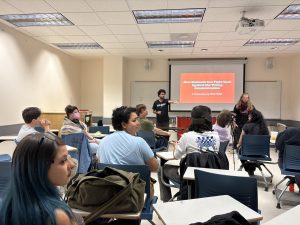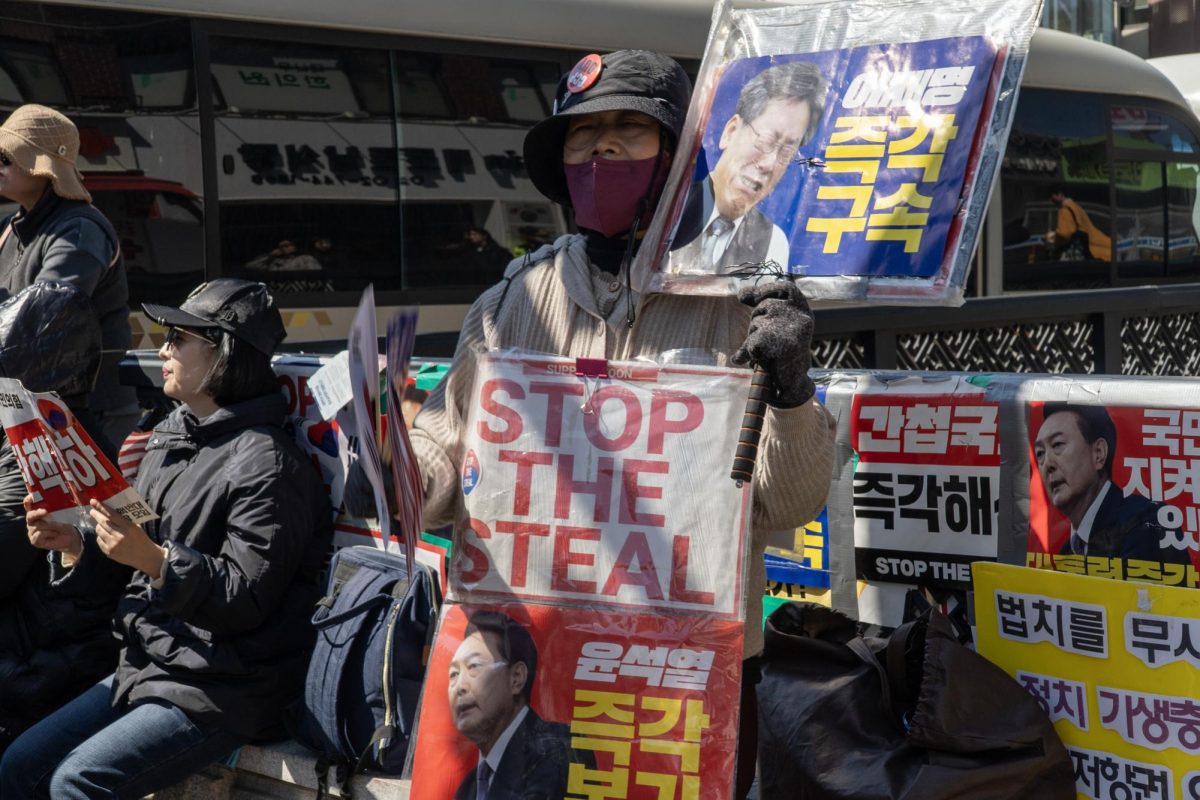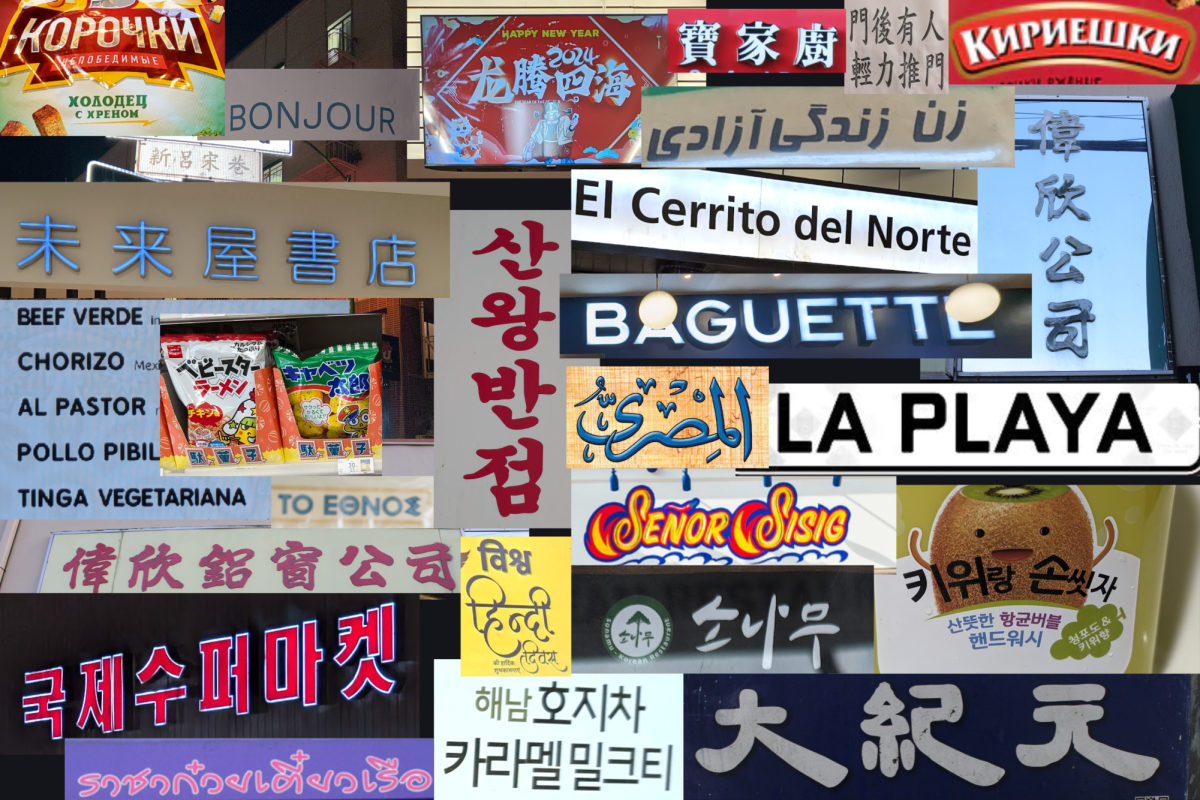On Feb. 27, more than 30 students packed into Room 207 of the Humanities Building, driven by a shared motivation — to better understand their role in political activism and how they can make a difference.
The Young Democratic Socialists of America at San Francisco State University hosted a political education event to discuss the impact students have in fighting back against the Trump administration.
A slideshow presentation covered key political topics, including why Trump won, the current political position and the Democratic Party’s failures. Char Bennett, a presenter, spoke about the Democratic Party’s role in compounding systemic issues.
“Behind closed doors, Democratic policies have been complicit, affecting immigrants, minorities and queer people,” said Bennett.
The event began with an icebreaker within the breakout groups where each person introduced themselves, shared why they decided to attend and reflected on how Trump’s first month in office had impacted them personally.
Ellis Love, a political science student, voiced his concerns about the rapid shift in the country’s political climate.
“We’re shifting into an era where it’s very dystopian, and I’m curious how the shift is happening so fast,” Love said.
Students engaged in the discussion, voicing their frustrations about the two-party system.
Love compared the two major political parties to “two wings on the same bird,” while Clem T., a conservation ecology and evolution major, criticized Democratic politicians for being, “more concerned with being palatable than doing any work to be progressive.”
Bennett also emphasized the importance of student mobilization.
“SFSU prides itself on being a safe space, and it needs to be that sanctuary,” Bennett said. “But no one else is going to come and save us — it’s important to be mobilized as students. He also warned that DEI rollbacks are canceling out careers for many students and that Trump’s policies are making it harder for students to afford education.”

Ali Noorzad, organizer and presenter for the event, said he was glad to see that the turnout was bigger than expected and that they could serve as a space for students to come up with a collective understanding of how impactful student mobilization can be.
“It showed that a lot of students are chomping at the bit for some kind of political activity,” Noorzad said. “Students are really upset at everything that’s happening right now in the country, but they’re not exactly sure what to do with that energy. Something needs to happen, but I don’t know what — that’s what I hear from students all the time. It’s up to organizations like YDSA to help lead the way.”
The presentation also helped conduct conversations about broad systemic issues and student-led resistance movements in other parts of the world and how it could be applied to the U.S.
“Giving people exposure to your experiences gives perspective on policies,” said Daniel Ragsdale, a fourth-year public health major.
The second half of the event examined global case studies of student-led resistance against fascism in Serbia, Brazil and France.
The Serbian case study detailed the rise of President Aleksandar Vučić, an authoritarian leader who consolidated media control, weakened political opposition and imposed budget cuts that led to infrastructure failures, including a bridge collapse in Novi Sad. Serbian students responded by leading mass protests, with 75% of university students going on strike.
After the presentation, students broke into groups to discuss lessons that could apply to the U.S.
“Student movements cause a disruption in the system,” Ragsdale said. “If we build ourselves up and work with other student organizations, we can work hand in hand with others.”
Brazil’s case study examined the fall of fascism in the 1960s, while France’s discussion centered on whether an alternative political movement could be built in the U.S.
Bennett explained that the case studies were meant to provide functional hope and serve as a reminder that while the situation is challenging, change is possible through informed action.
“It’s not the worst it can get,” Bennett said. “We need to approach this analytically, learn from history and understand our role in shaping the future.”
Both organizers noted that during SFSU’s first week back on campus, they tabled in the Quad for YDSA and spoke to over 100 students. The common theme among those conversations was a deep sense of hopelessness and distrust in the American government.
“We have to be honest about the stakes,” Noorzad said. “We must unite and organize, or it will get worse. Politics will always affect someone in some way.”
As the event came to a close, Bennett left students with a final call to action.
“The point of this is to empower students and make sure they know the power they have in their daily lives,” Bennett said. “Organize and fight back.”
Bennett and Noorzad said the organization has plans to continue to host educational sessions in the future, trying to reach as many students as possible.
This story has been updated to correct a name.









